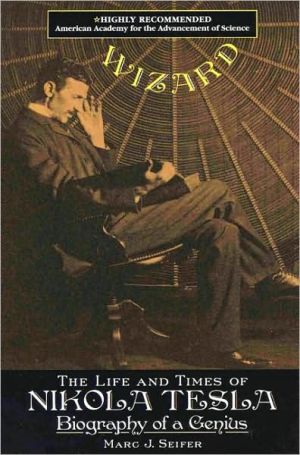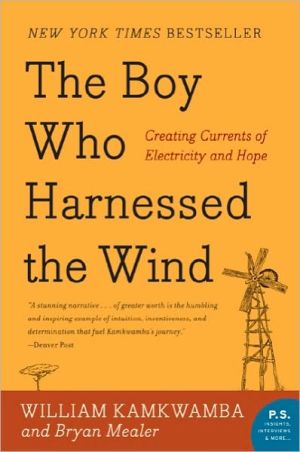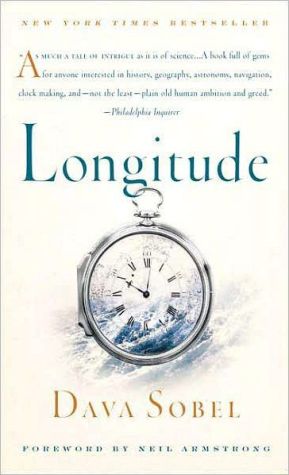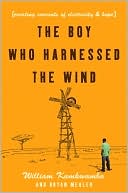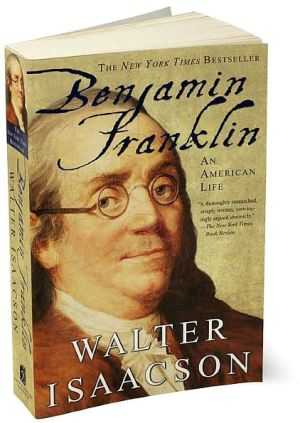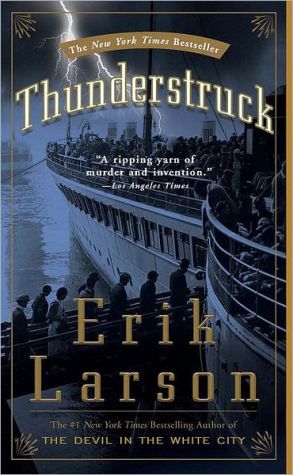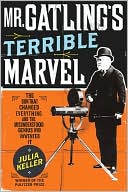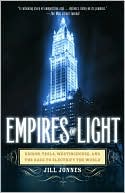Wizard: The Life and Times of Nikola Tesla
Nikola Tesla (1856-1943), credited as the inspiration for radio, robots, and even radar, has been called the patron saint of modern electricity. Based on original material and previously unavailable documents, this acclaimed book is the definitive biography of fthe man considered by many to be the founding father of modern electrical technology. Among Tesla's creations were the channeling of alternating current, fluorescent and neon lighting, wireless telegraphy, and the giant turbines that...
Search in google:
Nikola Tesla (1856-1943), credited as the inspiration for radio, robots, and even radar, has been called the patron saint of modern electricity. Based on original material and previously unavailable documents, Wizard is the definitive biography of the man considered by many to be the founding father of modern electrical technology. Wizard reveals the details of Tesla's struggles with competing contemporary inventors such as Edison, Steinmetz, and Marconi and with financial giants such as J. P. Morgan and John Jacob Astor as they were underwriting his laboratory work. (Tesla even worked for the Edison Company for several years.). Wizard brings to the fore an extraordinary man and recreates his life during one of the most exciting and innovative eras in America's history. The book is illustrated with 16 pages of photographs and drawings, including the July 20, 1931, Time magazine cover for an issue celebrating the inventor's career. Scientific American The story of one of the most prolific, independent and iconoclastic inventors of this century is a fascinating one. . . . The author presents much new material. . . [and] bases his book on a large number of archival and primary sources. . . . Underneath the layers. . . the core of Seifer's book is a serious piece of scholarship.
\ Scientific AmericanThe story of one of the most prolific, independent and iconoclastic inventors of this century is a fascinating one. . . . The author presents much new material. . . [and] bases his book on a large number of archival and primary sources. . . . Underneath the layers. . . the core of Seifer's book is a serious piece of scholarship.\ \ \ \ \ Publishers Weekly - Publisher's Weekly\ Seifer's vivid, revelatory, exhaustively researched biography rescues pioneer inventor Nikola Tesla from cult status and restores him to his rightful place as a principal architect of the modern age. Based largely on firsthand documents including Tesla's writings, his patents and those of competitors, it credits the Croatian-born Serb, who moved to New York in 1884, with the invention of the induction motor, long-distance electrical power distribution, fluorescent and neon lights, the first true radio tube and remote control, besides making vital contributions to the technology underlying television, wireless communication, robotics, lasers, the facsimile machine and particle-beam weaponry anticipating the space-based "Star Wars" defensive shield. Though often depicted as a recluse, flamboyant nouveau-riche Tesla 1856-1943 lived in Manhattan's Waldorf-Astoria Hotel for two decades, and hobnobbed with architect Sanford White, Mark Twain, Rudyard Kipling, conservationist John Muir, mogul John Jacob Astor III, Swami Vivekananda. Yet the electronic wizard, who competed fiercely with Marconi and with his one-time employer Edison, became swamped in debt, abandoned by a world he helped create, ending his days in seedy poverty, a bitter, anorexic eccentric obsessed with feeding pigeons and avoiding germs. Seifer, who teaches psychology at Community College of Rhode Island, attributes Tesla's downfall partly to his megalomaniacal, neurotic, self-destructive tendencies, partly to a quagmire of litigation and also to his Faustian pact with his ambivalent benefactor, Wall Street financier J. Pierpont Morgan, to whom he relinquished control of several patents. Morgan, suggests Seifer, stymied Tesla's visionary scheme for a global, wireless power-distribution system because, if realized, it would jeopardize electrical, lighting and telephone monopolies. Seifer provides the fullest account yet of Tesla as an entrepreneur, experimental physicist and inventor. Photos. Nov.\ \ \ Library JournalNikola Tesla is credited by many as the inventor of radio and should have received most of the credit for the development of modern electricity. Yet there is considerable confusion about his technical contributions and even more about his personal life. This book, by a professor of psychology at Bristol Community College and a member of the International Tesla Society, painstakingly documents Tesla's wide-ranging contributions. Born in Croatia, Tesla emigrated to the United States in 1884 and almost immediately began work on alternatives to what was then accepted as standard electrical technology. This brought him into conflict with Edison and later Westinghouse. The pattern of conflict continued for nearly 60 years, partially because Tesla was far ahead of his time, partially because he was erratic and off-beat, and partially because he was not an astute business partner. Seifer has analyzed extensive sources, many not previously used by other Tesla biographers, to provide a detailed interpretation of his life, but the fact that he also incorporates extensive handwriting analysis to arrive at several of his conclusions will certainly cause some reader concern. For larger science and biography collections.-Hilary Burton, Lawrence Livermore National Lab., Livermore, Cal.\ \
